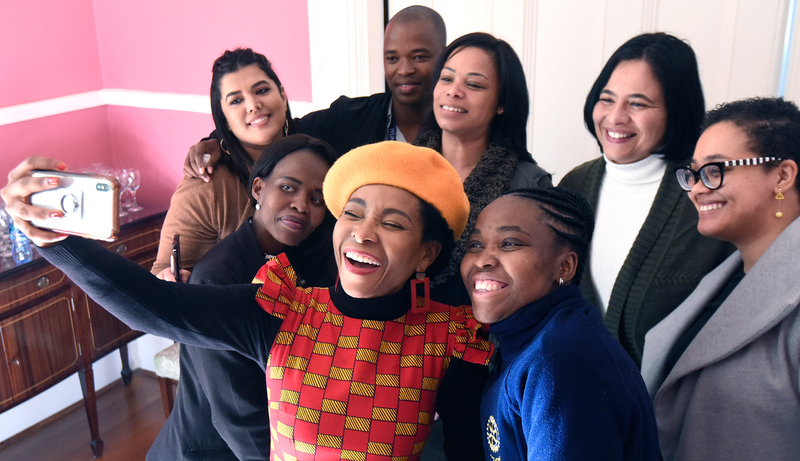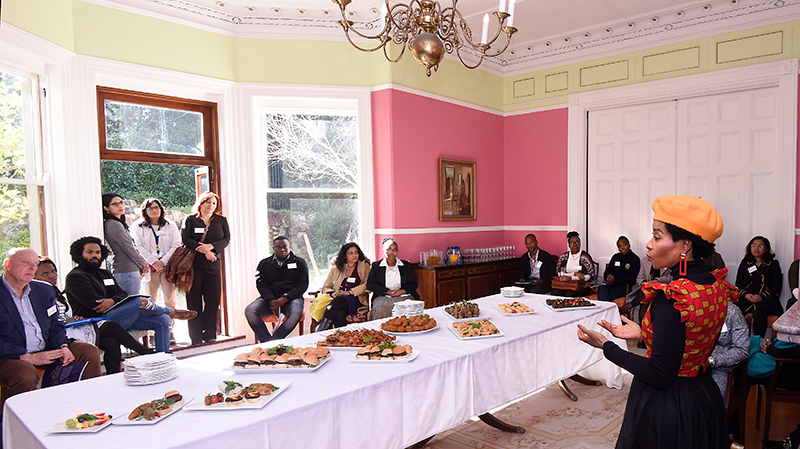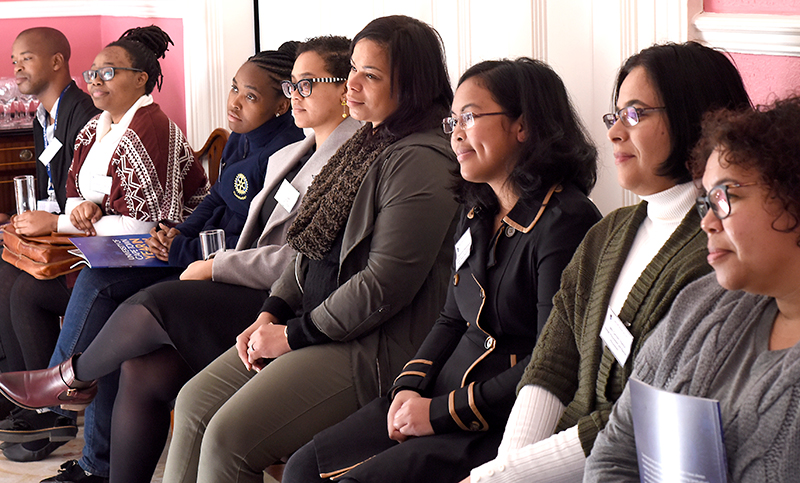Choosing UCT is a chance to impact Africa
28 June 2019 | Story Carla Bernardo. Photos Brenton Geach. Read time 5 min.
Choosing the University of Cape Town (UCT) as their place of work provides an opportunity to do meaningful work for the continent, Vice-Chancellor Professor Mamokgethi Phakeng told new staff members during a welcome lunch this week.
“You come to us at a time when we are trying to be not just the best in Africa but [also] the best for Africa. And to be the best, you need people to take you there,” she said.
At the event, which took place at the Vice-Chancellor’s official residence, Glenara, on Wednesday, 26 June, Phakeng briefed the more than 20 recent recruits from across campus on her and the university’s vision. The lunch will be a recurring event to celebrate the arrival of new academic and professional, administrative support and service (PASS) staff.

Phakeng explained that being the best university for Africa requires more than producing graduates who are “adequately prepared” technically and scientifically. It also means producing graduates with the right attitude and values; and it is about producing research that will continue to solve Africa’s and the world’s greatest challenges.
UCT must also be a leader on the continent in good governance, service and sports – including how to win and lose matches graciously, she added.
“We pride ourselves on the fact that we are the only university in the world currently where academic leadership of the university is in the hands of women.”
Phakeng listed the most recent rankings which placed UCT as the top university in Africa. The 2019 Quacquarelli Symonds World University Rankings saw UCT top in Africa and moving up two places. The Times Higher Education’s ranking in January 2019 also placed UCT as first in Africa and 156th in the world. In subject rankings, UCT is top in Africa for mining and mineral engineering.
“That’s not shabby at all,” she said.
Representation, excellence and transformation
Phakeng said she was particularly happy that many of those in the room were women as it is important to UCT that women and young people are represented across campus.
Representation in leadership is equally important, she added.
“We pride ourselves on the fact that we are the only university in the world currently where academic leadership of the university is in the hands of women.
“It’s not a small achievement; no [other] university has taken that chance in the world.”

The new staff were introduced to the programmes Phakeng has pioneered, including one that will enable research on women, by women, and the university’s funding to boost the numbers of black postgraduates.
Gender binaries
“One area we still need to grow is where we reimagine gender because … we are aware that the gender binaries are problematic,” the Vice-Chancellor said.
The aim is, therefore, to grow scholarship that critiques gender binaries and to provide funding for this essential research area.
“Excellence matters to us. We are a place of excellence and we want to sustain that.”
Wrapping up her welcome, she explained the three pillars of her vision: excellence, transformation and sustainability.
“Excellence matters to us. We are a place of excellence and we want to sustain that.”
But, she added, “excellence is not innocent, excellence is not benign”.
“Excellence can exclude, it can marginalise, it can silence … We understand the complexities of excellence even as we encourage it.”
Therefore, to make UCT’s excellence sustainable, the university must pursue transformation. Without it, said Phakeng, UCT’s excellence will be undermined and it will always be questioned.
“If we don’t attend to transformation, my view is that we will slowly deteriorate,” she said.
And while she recognised transformation was no small task, she was excited for the work as it presents the university with a “wonderful assignment”.
 This work is licensed under a Creative Commons Attribution-NoDerivatives 4.0 International License.
This work is licensed under a Creative Commons Attribution-NoDerivatives 4.0 International License.
Please view the republishing articles page for more information.










